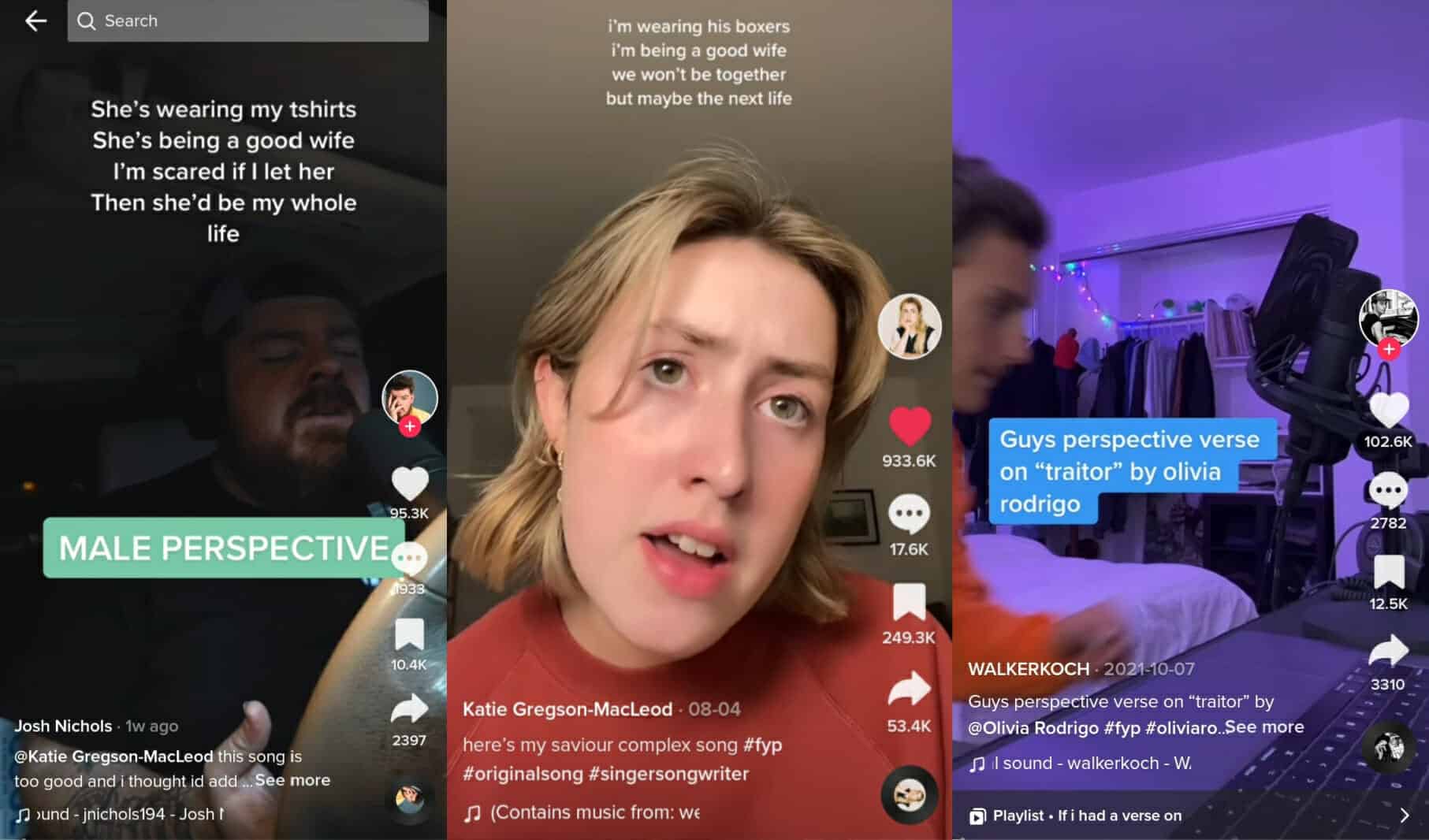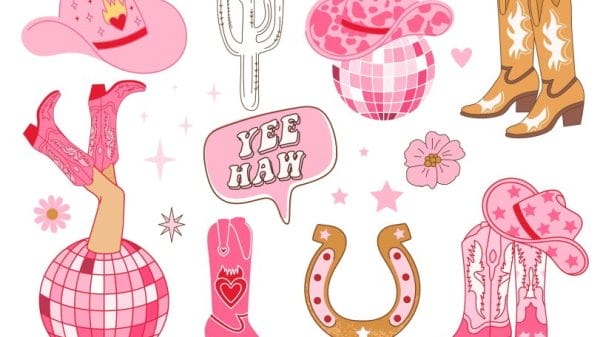If you’ve been on TikTok this week, you may have seen the viral song by Katie Gregson-MacLeod somewhere on your feed.
The song, which has been titled by many as ‘Complex,’ has been viewed no less than 5.7 million times and has caught the attention of several celebrities who have commented, including Maisie Peters, Joe Jonas, and Fletcher, to name but a few. Following Katie uploading an instrumental version, many TikTok users duetted the video, either to cover it or to add their own lyrics to the song.
@katiegregsonmacleod here’s my saviour complex song #fyp #originalsong #singersongwriter ♬ original sound – Katie Gregson-MacLeod
The Male Perspective
With the avalanche of covers that came with Katie’s song, so came the versions “from the male perspective”. The vast majority of such types of covers, as far as I can see, indulges in the point of view of a “bad guy” who loves her but hurts her, knowing she deserves better. (Maybe this is an apt time to point out, and maybe this is nitpicking, but the people who write such covers seem to completely miss the point of the song – the man in the song is not tortured over how he’s treating her but unable to change, he’s simply oblivious to her pain, and does not love her as much as she loves him, which @iamkleemusic on Tiktok was quick to point out once the covers came flooding in).
KLEE elaborates:
“I think mostly the “male perspective” is silly. Especially on Kate’s song, she writes about pining over this guy who doesn’t seem to care about her. Yet, guys were making videos about how awful they were treating the girl – acting all tortured and upset. In reality, I doubt this man gave a second thought to what he was doing. The male POV’s are totally missing the point.”
The “Bad Guy”
The “male perspective” covers all seem to star the man who cannot help but do wrong by the female character, often because of some form of childhood trauma or alcohol issues. In one cover, the male perspective features a torn-up man who, in ghosting her or in hurting her, is actually saving her from himself, lamenting: “She’s trying to save me / I’m saving her from me”. In an unexpected turn around, this “bad guy” figure is trying to save her and is really the flawed hero with her best interests at heart.
@sunsetto #duet with @katiegregsonmacleod #Duet ♬ original sound – Katie Gregson-MacLeod
This “bad but secretly good” man who hurts the female character features in nearly all of the covers- @Christyan_official sings “I can’t understand how I became who I am […] a broken little boy with a lot of issues to fix / childhood trauma, I wish that was it”, @thetorsband laments “she’s playing the hero, I’m good at the bad guy”, @conorrbyrne echoes the same: “good girl with a bad guy”, and @jnichols194 sings “she’s too good a human, to be stuck with the bad guy”.
This archetype of the seemingly bad guy with hidden depth is not a new one, but perhaps its one that should be retired soon. In Jezebel’s 2012 article, titled “I Suck: How Guys Use Self-Deprecation Against You”, history and gender studies lecturer Hugo Schwyzer warns the reader of this:
“Call it the “I’m such an asshole” speech or call it strategic self-deprecation, the end goal is always the same: deflect women’s anger”
In this light, using the strategy, either consciously or unconciously, serves to delegitimize the hurt or anger of the woman, and transform those emotions into something that resembles nurture or pity instead. In traps the woman in a postion where maintaining her anger or hurt seems like an expedition in proving the man right. Schwyzer continues:
“While traditional gaslighting makes women’s anger seems irrational, this self-depracatory wallowing makes women’s anger seem like unfair piling-on to a guy who already hates himself more than you ever could.”
Thus, a woman’s hurt or anger becomes the means to “sooth male anxiety” and, as these TikTok covers show, use potentially very real issues for men (childhood trauma or alcoholism) as an excuse for the hurt they cause their romantic partners and a means to avoid accountability.
The “Male Perspective”- Revisited by a Woman
Several users of TikTok have grown tired of the “male perspective” of songs by a female artist. Many of the covers are songs that explore a woman’s heartache in a relationship, and thus the male’s adverse perspective details their act of hurting the woman in a way that translates poorly. (One “male perspective” cover of Olivia Rodrigo’s Traitor features a man singing: “I betrayed you, and you know that I’ll never feel sorry, for the way I hurt you”.) Inevitably, they come off as manipulative and recentres the narrative around this male point of view. This is known as androcentrism- the act of centering the masculine perspective in our worldview and culture, therefore marginalizing the female experience. In rewriting a woman’s heartbreak song to center around your own hurt rather than your hurtful actions, it adds (in whatever marginal way) to the practice of androcentrism.
Many TikTok users have grown tired of this “male perspective”, claiming they were not asked for and miss the point of the song. The aforementioned @iamkleemusic uploads her take of the male perspective of Katie Gregson MacLeod’s song on the app, but sits silently, implying there is no need for one.
@iamkleemusic #duet with @katiegregsonmacleod ♬ original sound – Katie Gregson-MacLeod
With this in mind, maybe it is best for men to allow for the space in female music which does not center around their own emotions, but rather cover the songs, or write their own, or something that does not center around the narrative of “hurting you hurt me”.
To read more about male perspectives on TikTok, check out this article about TikTok “sadboy” accounts.













